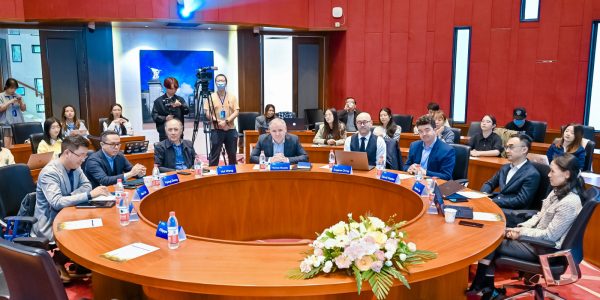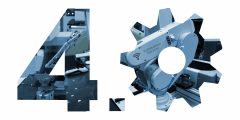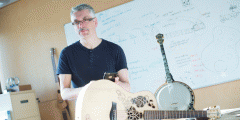Shaping the Connected Museum: How can cultural heritage be reproduced digitally?
October 28, 2022
As part of the Shaping the Connected Museum II project, funded by the UKRI Arts and Humanities Research Council, researchers from the University of Nottingham have been working with colleagues at Ningbo campus to deliver a series of events to drive creative growth and innovation through international collaboration. Researchers from the NVIDIA Joint-Lab on Mixed Reality (China …
Industry 4.0 reduces beer going down the drain at craft brewery
February 26, 2021
In the fourth Industrial Revolution, or Industry 4.0, digital will be the key enabler for manufacturing industries. Dr Nik Watson, Associate Professor at the University of Nottingham talks to the Institution of Mechanical Engineers about his research within food and drink manufacturing focused on using non-invasive senor technology in combination with machine learning and cloud …
DigiTOP Digital Manufacturing Webinar Series
November 11, 2020
The DigiTOP team are presenting a Digital Manufacturing Webinar Series; shedding light on digital technologies, human factors and productivity. Webinars will be delivered by academics from the University of Nottingham, Loughborough University and Cranfield University and cover topics ranging from ‘human-robot collaboration’ to ‘the creative and structured elements of rich pictures’.
The Future of Factory Cleaning Framework
June 15, 2020
Responsible cleaning data collection and use framework Ensuring a hygienic production environment is one of the biggest challenges facing food and drink manufacturers, as the industry responds to a growing demand for closer monitoring of cleaning standards and challenges from elevated allergen management, against the constant backdrop of cost pressures. ‘Industry 4.0’—the next industrial revolution—promises …
Director’s Blog
December 5, 2019
The Smart products beacon is tackling two big questions. What are smart products? And how are they made? A smart product is one that uses digital technologies and especially personal data to become more adaptive, personalised and valuable. It captures data throughout its lifetime – through both manufacture and use – and uses this …





